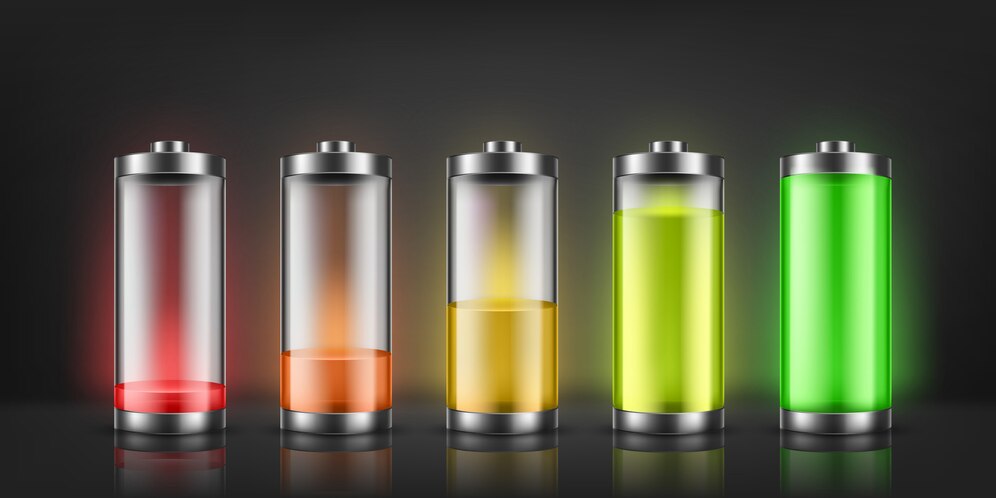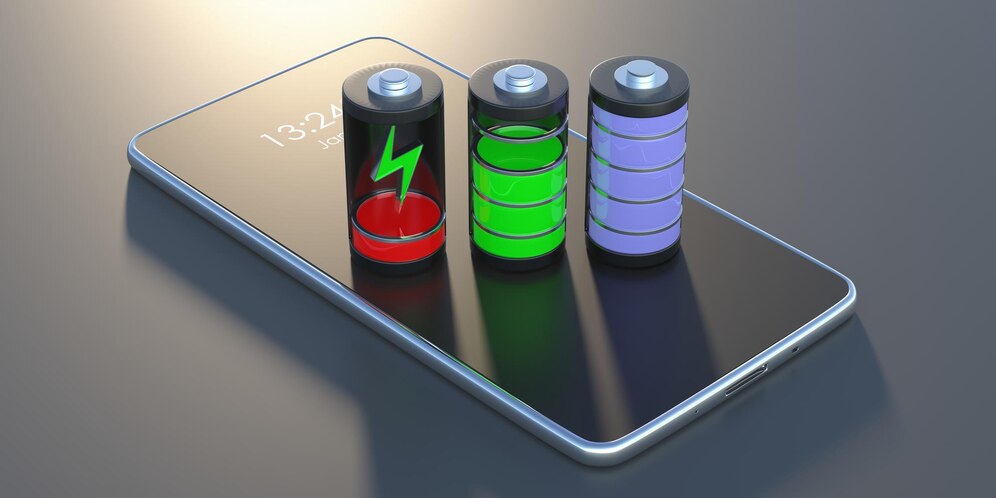To keep your battery 100% healthy, avoid extreme temperatures and overcharging. Regularly calibrate your battery to ensure its longevity and efficiency.
Additionally, using battery-saving modes and optimizing your device’s settings can help maintain the health of your battery. Mindful charging practices, such as using a compatible charger and avoiding frequent high-speed charging, are also essential for preserving battery health. Furthermore, removing unnecessary background apps and minimizing multitasking can contribute to prolonging your battery’s lifespan.
Taking these proactive steps will assist in preserving the integrity and performance of your device’s battery, ultimately ensuring its long-term health.

Understanding Battery Health
Maintaining keep battery healthy you can be achieved through proper charging habits, avoiding extreme temperatures, and using reputable charging accessories. Regularly calibrating your battery and keeping it between 20% and 80% charge can help extend its lifespan. Regular monitoring and maintenance are key to a healthier battery.
Understanding Battery Health
Types of Batteries
There are several types of batteries commonly used in electronic devices, each with its own unique characteristics and requirements for maintaining optimal health. These include:
1. Lithium-Ion (Li-ion): Commonly found in smartphones, laptops, and other portable electronic devices, Li-ion batteries offer high energy density and long cycle life. They require regular charging to maintain their health and should be stored at around 50% charge for long-term storage.
2. Lead-Acid: Often used in cars, motorcycles, and uninterruptible power supplies, lead-acid batteries are known for their low cost and robustness. However, they are susceptible to sulfation if left in a discharged state for an extended period, which can significantly impact their lifespan.
3. Nickel-Metal Hydride (NiMH): NiMH batteries are often used in cameras, flashlights, and cordless power tools due to their high capacity and ability to deliver consistent power. However, they are prone to “memory effect,” requiring periodic full discharges to maintain their capacity.
Factors Affecting Battery Health
Several factors can influence the health and longevity of batteries. It’s important to be mindful of these aspects to ensure your batteries remain in peak condition:
1. Temperature: Extreme temperatures, both hot and cold, can have a detrimental impact on battery health. High temperatures can accelerate chemical reactions within the battery, leading to increased degradation, while cold temperatures can reduce battery performance and capacity.
2. Charging Patterns: The way you charge your batteries can affect their long-term health. Avoid frequent shallow discharges and recharges, as this can contribute to capacity loss over time. Instead, opt for occasional deep discharges followed by full recharge cycles to help calibrate the battery and maintain its capacity.
3. Age and Usage: As batteries age, their capacity and performance naturally decline. Additionally, heavy usage, such as prolonged periods of high power draw, can accelerate this degradation. It’s important to be mindful of the age and usage patterns of your batteries and consider replacement when necessary.
4. Overcharging and Overdischarging: Both overcharging and overdischarging can be damaging to batteries. Overcharging can cause the battery to overheat and degrade, while overdischarging can lead to irreversible damage and reduced capacity.
By understanding the different types of batteries and the various factors that can impact their health, you can take proactive steps to ensure your batteries remain in optimal condition, maximizing their lifespan and performance.
Best Practices For Battery Maintenance
The proper maintenance of your device’s battery is essential for its longevity and reliable performance. By following best practices for battery maintenance, you can ensure that your battery remains healthy and efficient for an extended period. This article will cover a range of maintenance techniques to help you keep your battery in optimal condition.
Proper Charging Techniques
Follow these best practices to ensure your battery’s health:
- Charge your device using the manufacturer-provided charger or a reputable third-party charger designed for your specific device model.
- Avoid exposing your device to extreme temperatures while charging, as this can negatively impact the battery’s health.
- Disconnect your device from the charger once it reaches 100% charge, as overcharging can degrade the battery’s capacity over time.
Temperature And Storage Considerations
Consider the following factors to maintain your battery’s health:
- Store your device in a cool, dry environment to prevent excessive heat from affecting the battery.
- Avoid leaving your device in direct sunlight or in areas with high humidity, as these conditions can lead to battery degradation.
- When storing your device for an extended period, ensure the battery is at around 50% charge to prevent deep discharge or overcharging.
Avoiding Overcharging And Deep Discharging
- Avoiding leaving your device plugged in overnight or for long periods, as this can lead to overcharging and reduce battery lifespan.
- Regularly using your device to prevent deep discharge, as extended periods of inactivity can negatively impact the battery’s capacity.
Monitoring Battery Health
Monitoring battery health is crucial for ensuring the longevity and optimal performance of your battery. By consistently keeping an eye on its status, you can prevent potential issues and maintain its health. Below are some key methods for monitoring battery health:
Utilizing Battery Management Systems
Battery Management Systems (BMS) are essential for monitoring the performance of a battery. They provide real-time data on voltage, temperature, and state of charge, allowing you to track the health of the battery accurately. A BMS helps in identifying any abnormalities or potential issues, enabling timely intervention to maintain battery health.
Regular Physical Inspections
Conducting regular physical inspections of the battery is equally important. This involves visually checking for any signs of corrosion, leaks, or physical damage. By inspecting the connections and overall condition of the battery, you can promptly address any issues that may affect its health.
Tips For Prolonging Battery Lifespan
Maintaining a healthy battery is essential for ensuring the optimal performance of your devices. By implementing the following tips, you can effectively prolong the lifespan of your battery, helping it to stay at 100% health for longer periods.
Decreasing Energy Consumption
One of the most effective ways to extend battery lifespan is to reduce energy consumption. By minimizing the processes and tasks that drain the battery, you can significantly enhance its longevity. Avoid running multiple applications simultaneously, particularly those that are power-intensive. Additionally, lowering the screen brightness and using dark mode can contribute to reducing energy usage, thereby preserving battery health.
Utilizing Battery Saver Modes
Modern devices are equipped with battery saver modes designed to optimize power management. These modes adjust various settings, such as screen brightness, connectivity, and system performance, to conserve battery life. When activated, they can significantly extend the time between charges and minimize wear on the battery. Regularly enabling battery saver modes, especially when the device is not in heavy use, is an effective strategy for maintaining battery health over time.
Environmental Impact And Disposal
When it comes to sustaining a healthy battery, it’s essential to consider not only the performance of the battery but also its environmental impact and proper disposal. Sustainable battery management and safe disposal practices play a crucial role in reducing the negative effects on the environment and ensuring that batteries are managed responsibly.
Sustainable Battery Management
Sustainable battery management is essential for reducing the environmental impact of batteries throughout their lifecycle. This involves using rechargeable batteries whenever possible, as they minimize the amount of battery waste that ends up in landfills. Additionally, choosing batteries with longer lifespan and low self-discharge rates helps in reducing the frequency of battery replacements, thereby decreasing the overall environmental impact.
Safe Disposal Practices
Safe disposal practices are crucial for managing batteries at the end of their life cycle. It’s important to promote battery recycling programs to ensure that batteries are disposed of properly. Educating consumers about the potential hazards associated with improper battery disposal is also crucial in promoting safe disposal practices, so they are aware of the impact of their actions on the environment.

I hope you find this information helpful! Let me know if you need anything else.
Frequently Asked Questions On How Do I Keep My Battery 100% Healthy?
How Can I Extend My Battery Lifespan?
To extend your battery lifespan, avoid overcharging, keep it between 20-80% charge, and avoid extreme temperatures.
What Are Some Tips For Maintaining A Healthy Battery?
Maintain a healthy battery by using original chargers, avoiding fast charging frequently, and keeping your device updated.
Is It Ok To Leave My Device Charging Overnight?
Leaving your device charging overnight can degrade the battery. It’s best to unplug it once it reaches 100% charge.
Can Frequent Full Discharges Harm My Battery?
Frequent full discharges can stress the battery. It’s better to keep your battery charged between 20-80% for longevity.
Conclusion
It is essential to adopt healthy charging habits to maintain your battery’s longevity. By following simple steps like avoiding overcharging and extreme temperatures, you can ensure your battery remains healthy. Remember to use a genuine charger and keep your phone updated, ultimately preserving your battery for the long run.

